White and green patchwork
unintentional design
daily mindfulness
Your Custom Text Here

White and green patchwork
unintentional design
daily mindfulness

Friday morn malaise
lingering with my coffee
but no Boston Globe

Zumba class today
humbling experience
more practice needed!

Bright blue winter sky
intricately woven nest
still life for today

Now is the right time
possibilities unfurl
if we move forward

Cold, frosty morning
thank goodness for heated seats
the best invention

Packing up Christmas
savoring the memories
until next Christmas

Glistening black beans
ritual of the morning
anticipation

New year awakens
possibilities abound
still without judgement
Want to jump start your mindfulness in the new year? Join me and friends from around the globe in a 31 day challenge!
Write one haiku a day for the month of January. The Japanese form of poetry called haiku is simple yet profound and pares down our observations to the essence. A haiku is a short sensory thought/poem that captures a feeling or image through words. The format is one that you may remember from elementary school...first line is 5 syllables, second line is 7 syllables and third line is 5 syllables for a total of a 17 syllable poem/thought. Mindfulness is about paying attention to the present moment and so is the writing of a haiku. Please join me and others in this fun challenge during the month of January. To share our haiku, we will be using the hashtag #haikuchallenge16 to aggregate the haiku. Twitter, Instagram, Facebook etc are great places to post your creations. You may also paste your haiku into the comment section of each day's haiku on my blog. I can't wait to read them!
We find ourselves, again, at the intersection of fear and hope. The horrific violence in Paris on November 13 played out in real time through news coverage and social media shook us to our core, as many could identify with random sense of violence while going about one's day to day life. Human nature is to protect our families and our tribes, but who are our families and tribes in this day and age of global connection?
Only two months ago, "we" rose up in horror at the sight of Aylan Kurdi, the three year old Syrian boy whose body washed up on the Turkish beach, as his refugee family was trying to escape the horrors of a war torn country. We are now confronted with many political voices refusing to offer sanctuary to families such as Aylan Kurdi's due to the violent assault on Paris we witnessed last week. But by viewing the world as "us" and "them" aren't we also losing a bit of humanity by separating ourselves from the image of Aylan and replacing it with an image of a terrorist?
I don't know what the answer is, but I hope that as we each struggle with finding resilience in this horrific event we don't lose sight of the hope that exists by being blinded with fear. We live in a shared world, one in which I choose to give more energy to hope versus fear. It is with this intent that I share with you the poetry of Naomi Shihab Nye, Gate A-4

After learning my flight was detained 4 hours,
I heard the announcement:
If anyone in the vicinity of gate 4-A understands any Arabic,
please come to the gate immediately.
Well—one pauses these days. Gate 4-A was my own gate. I went there.
An older woman in full traditional Palestinian dress,
just like my grandma wore, was crumpled to the floor, wailing loudly.
Help, said the flight service person. Talk to her. What is her
problem? We told her the flight was going to be four hours late and she
did this.
I put my arm around her and spoke to her haltingly.Shu dow-a, shu- biduck habibti, stani stani schway, min fadlick,Sho bit se-wee?
The minute she heard any words she knew—however poorly used—
she stopped crying.
She thought our flight had been canceled entirely.
She needed to be in El Paso for some major medical treatment the
following day. I said no, no, we’re fine, you’ll get there, just late,
Who is picking you up? Let’s call him and tell him.
We called her son and I spoke with him in English.
I told him I would stay with his mother till we got on the plane and
would ride next to her—Southwest.
She talked to him. Then we called her other sons just for the fun of it.
Then we called my dad and he and she spoke for a while in Arabic and
Found out of course they had ten shared friends.
Then I thought just for the heck of it why not call some Palestinian
poets I know and let them chat with her. This all took up about 2 hours.
She was laughing a lot by then. Telling about her life. Answering
questions.
She had pulled a sack of homemade mamool cookies—little powdered
sugar crumbly mounds stuffed with dates and nuts—out of her bag—
And was offering them to all the women at the gate.
To my amazement, not a single woman declined one. It was like a
Sacrament.
The traveler from Argentina, the traveler from California,
the lovely woman from Laredo—we were all covered with the same
powdered sugar. And smiling. There are no better cookies.
And then the airline broke out the free beverages from huge coolers—
non-alcoholic—and the two little girls for our flight, one African
American, one Mexican American—ran around serving us all apple juice
And lemonade and they were covered with powdered sugar too.
And I noticed my new best friend—by now we were holding hands—
had a potted plant poking out of her bag, some medicinal thing,
with green furry leaves. Such an old country traveling tradition. Always
carry a plant. Always stay rooted to somewhere.
And I looked around that gate of late and weary ones and thought,
this is the world I want to live in. The shared world.
Not a single person in this gate—once the crying of confusion stopped
—has seemed apprehensive about any other person.
They took the cookies. I wanted to hug all those other women too.
This can still happen anywhere.
Not everything is lost.
What a treat...a magical day in Concord as Stress Resources' students and friends were treated to a lovely Traditional Chinese Tea Ceremony presented by Tea Master Haiyan Feng.
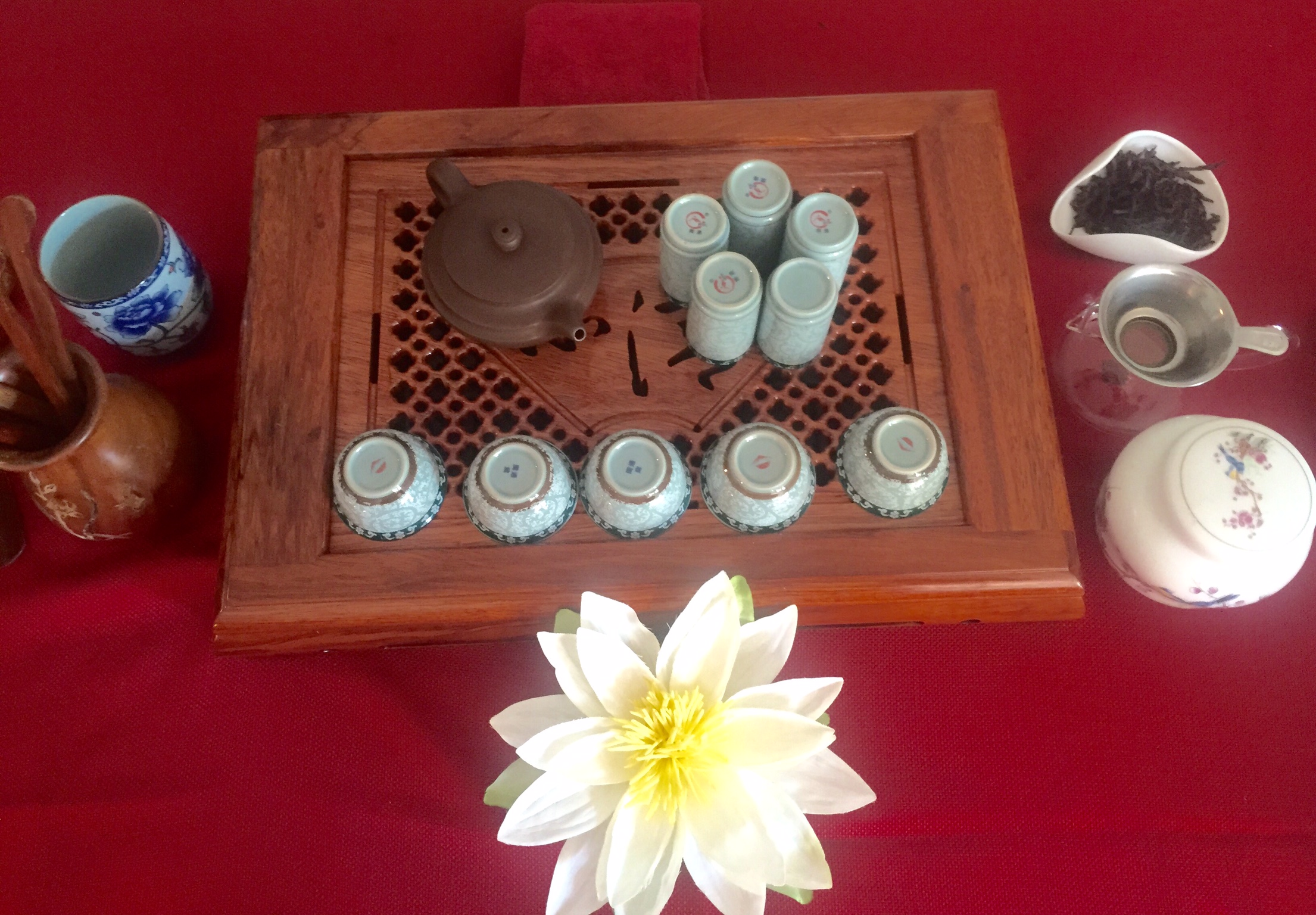
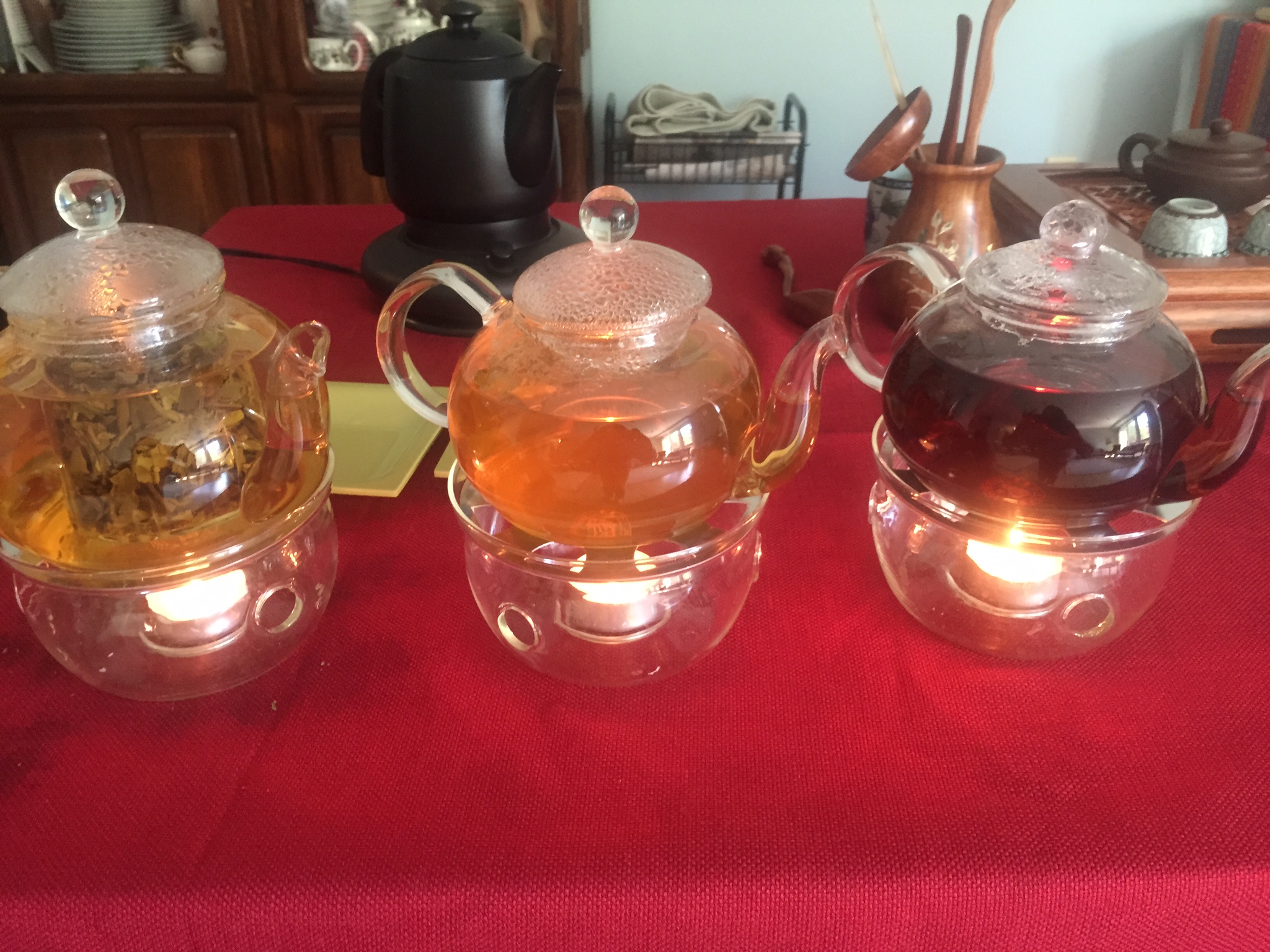
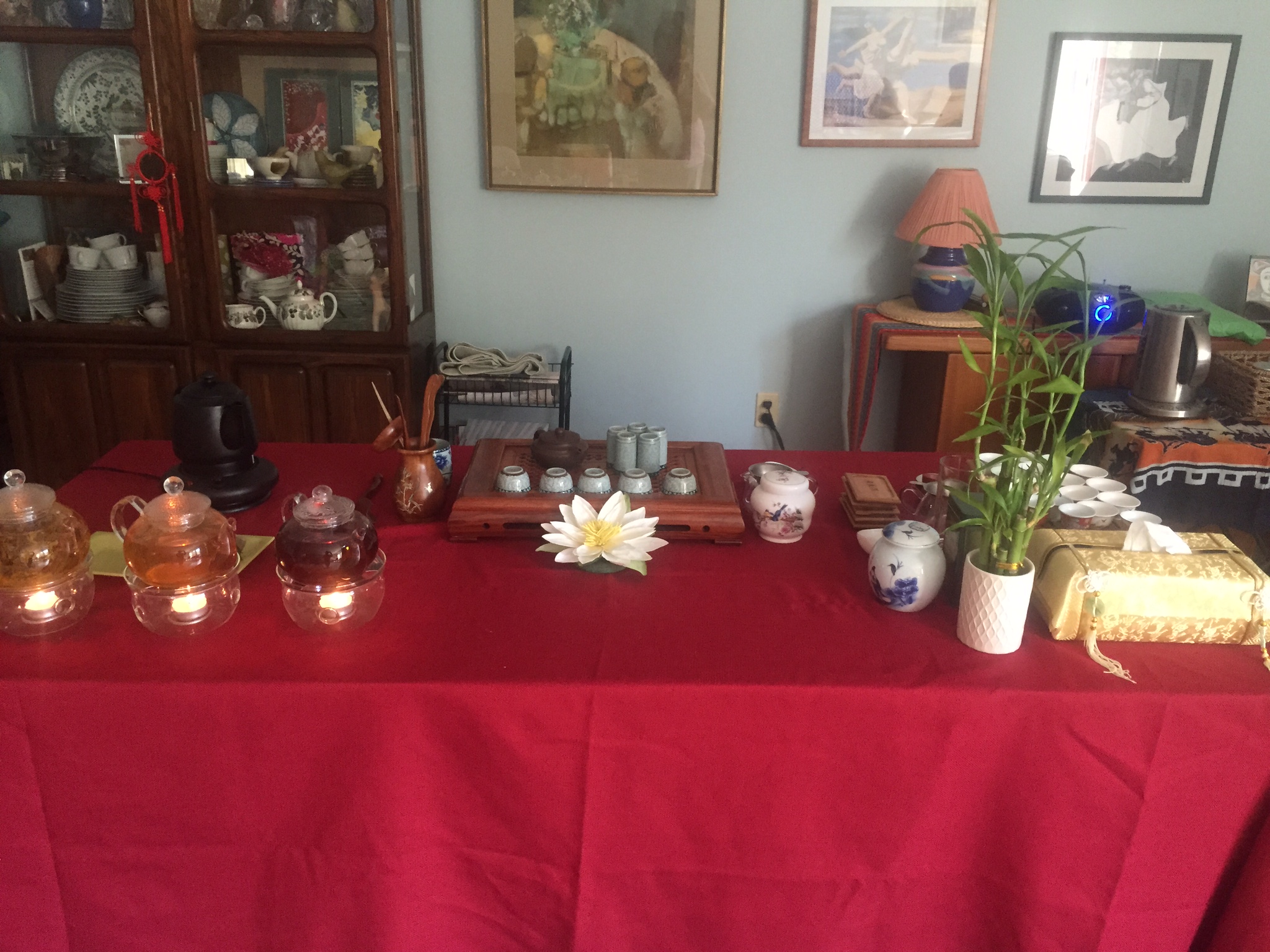
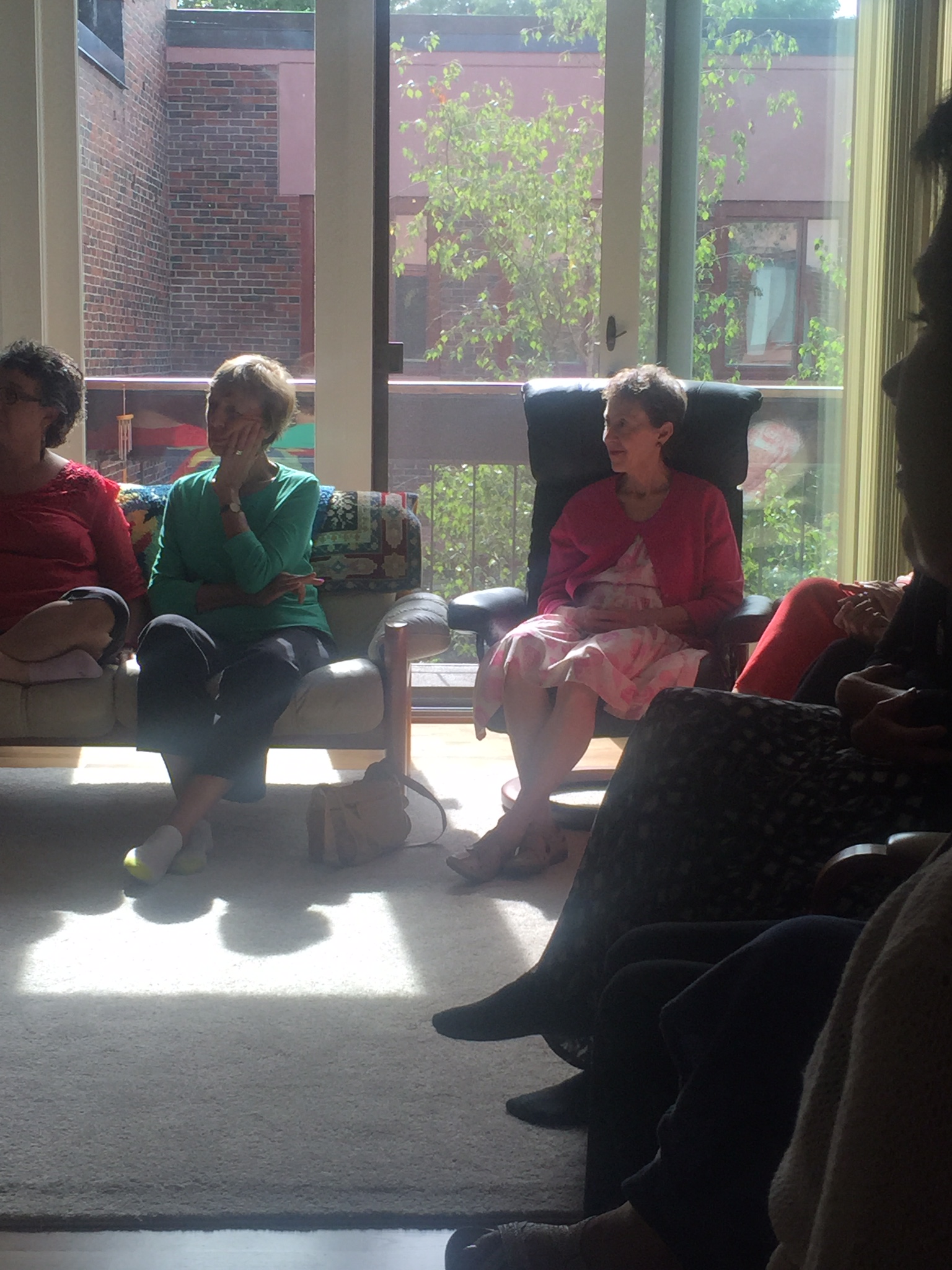
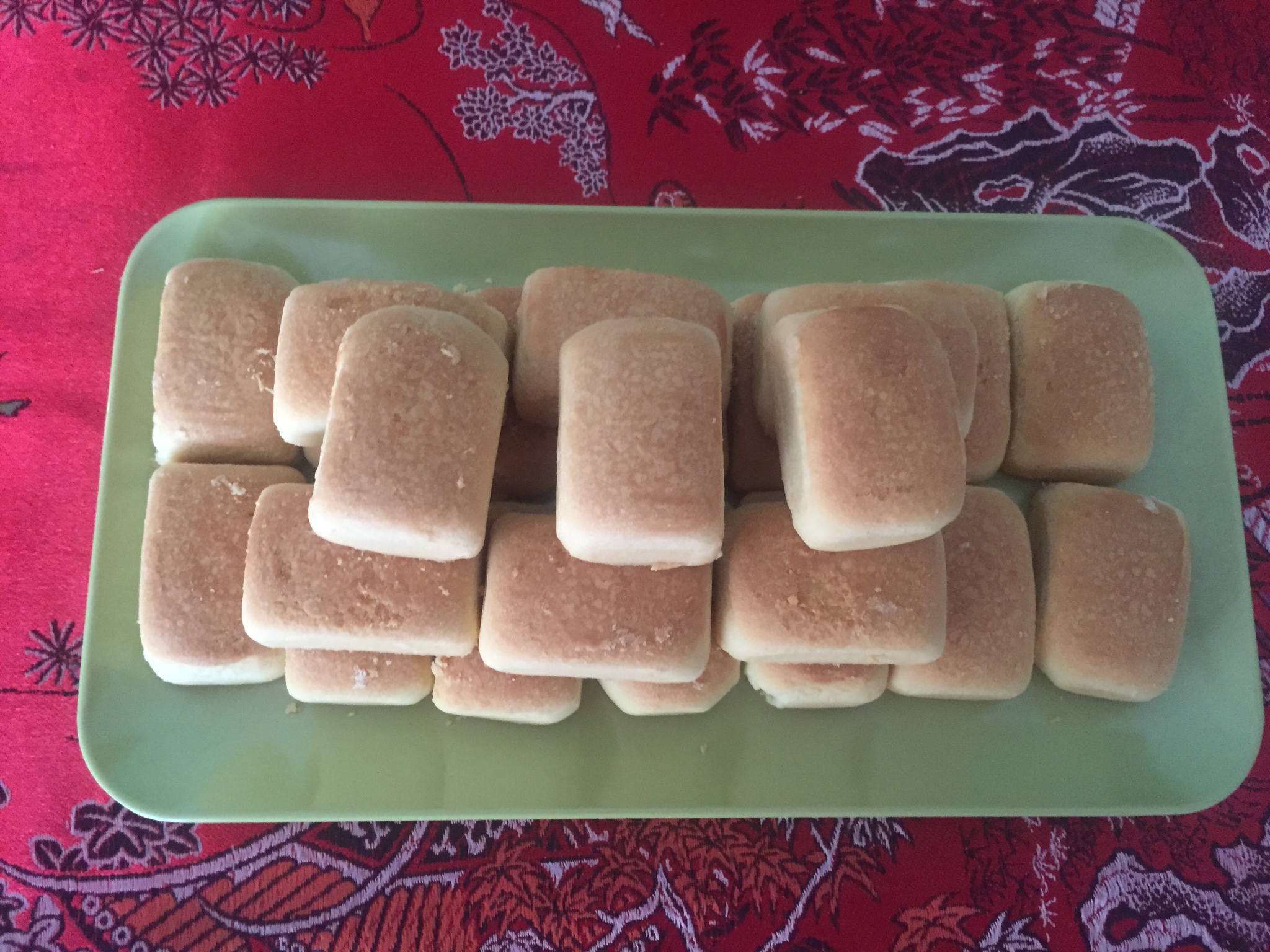
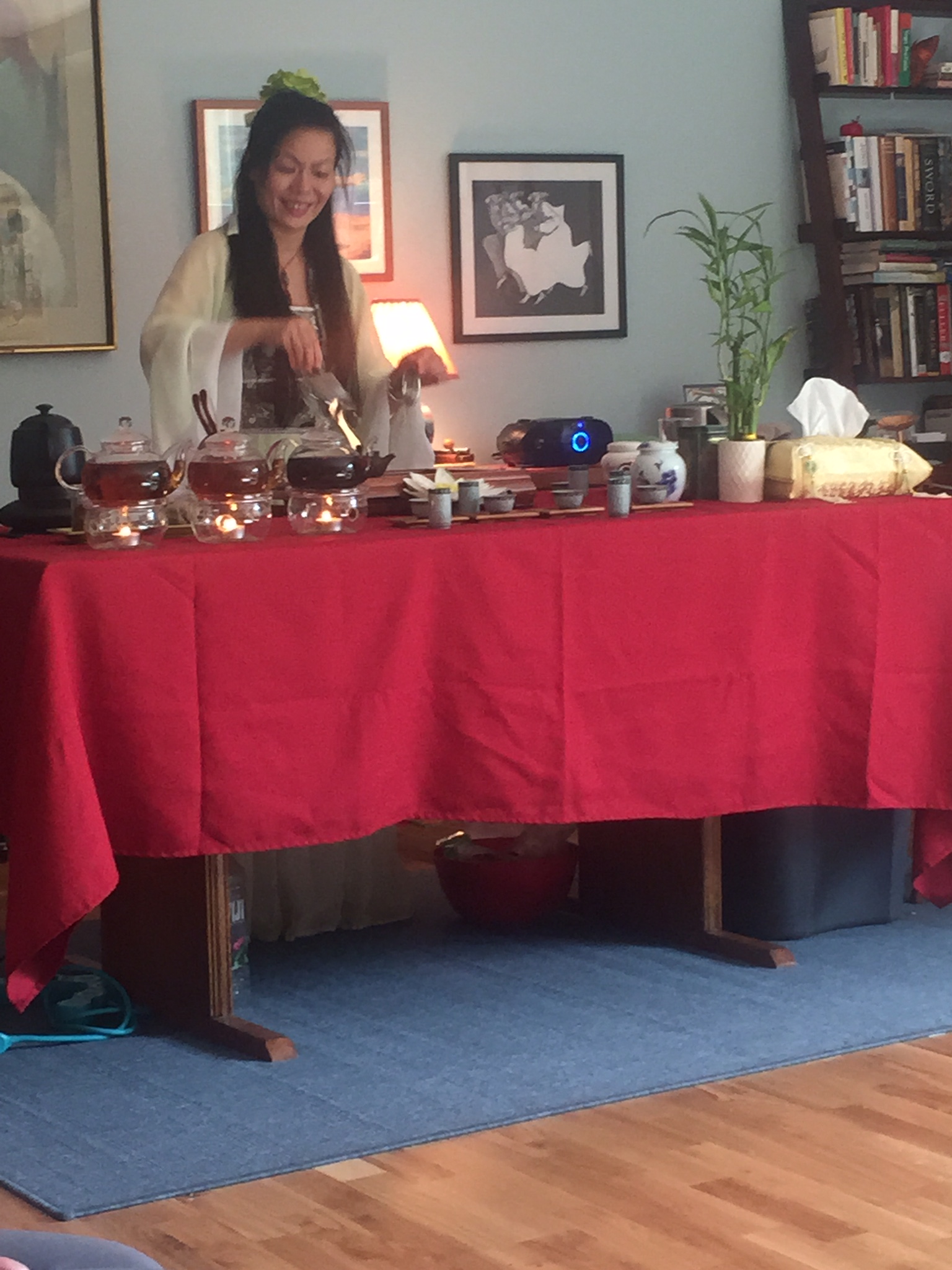
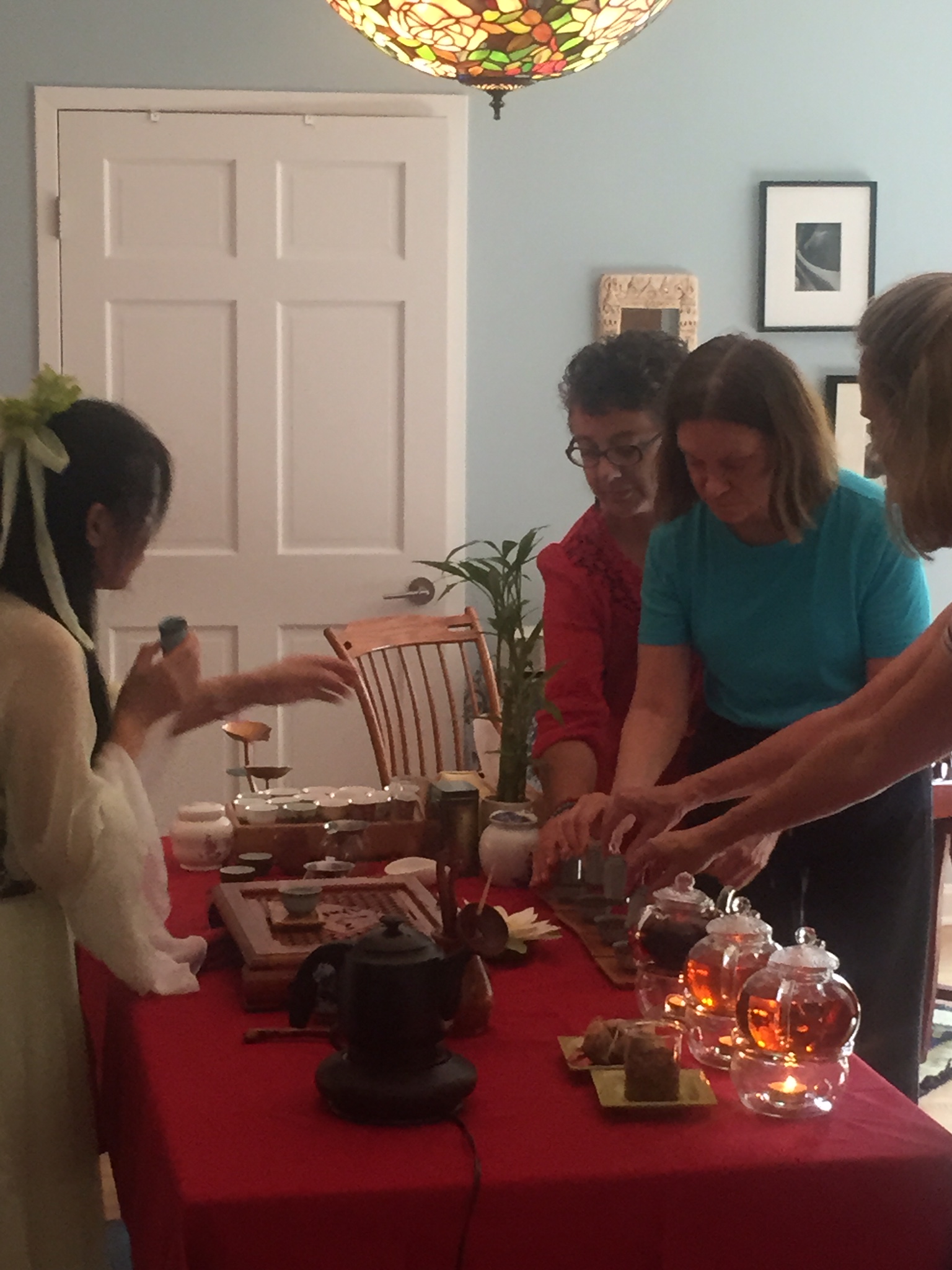
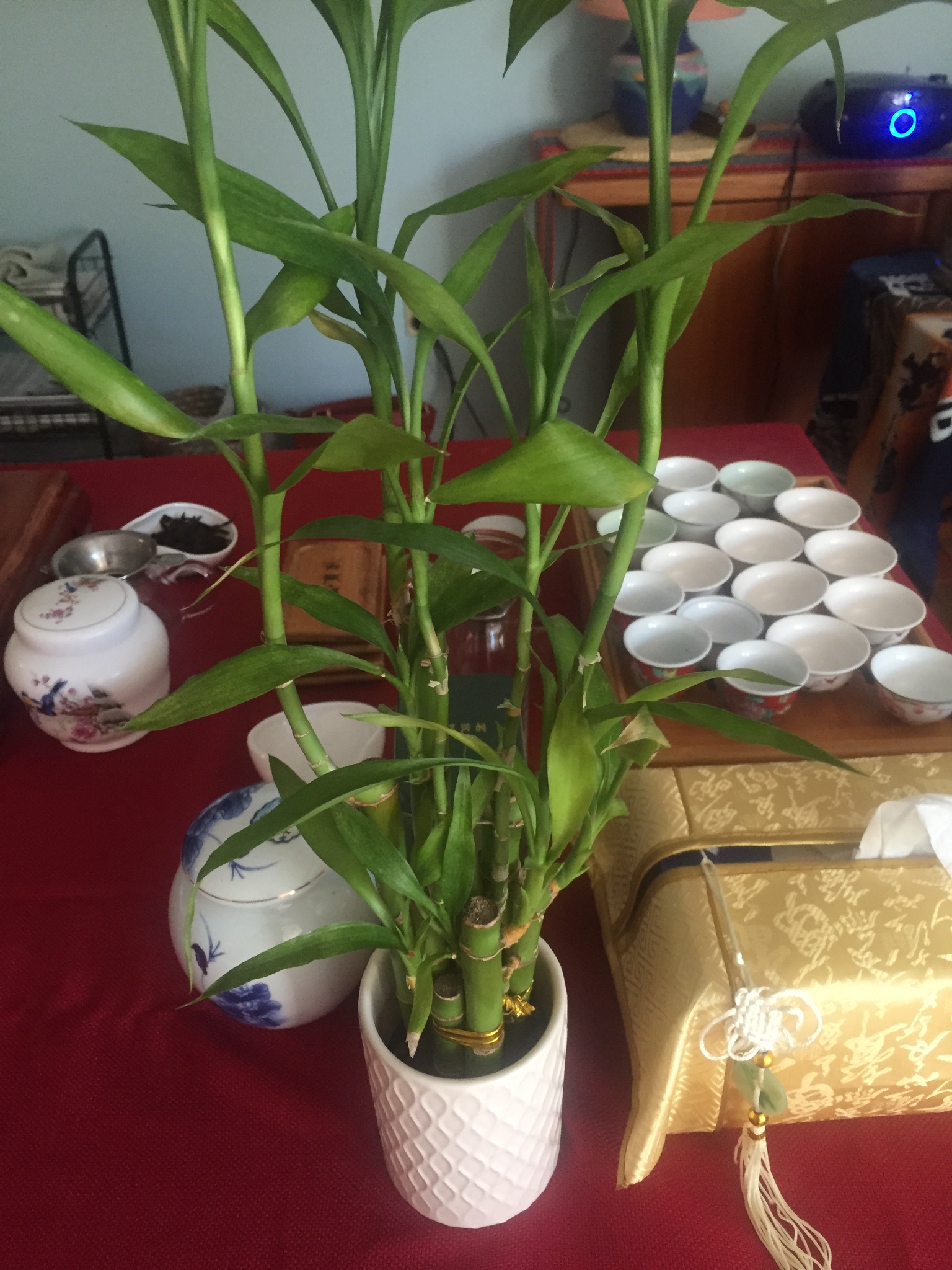
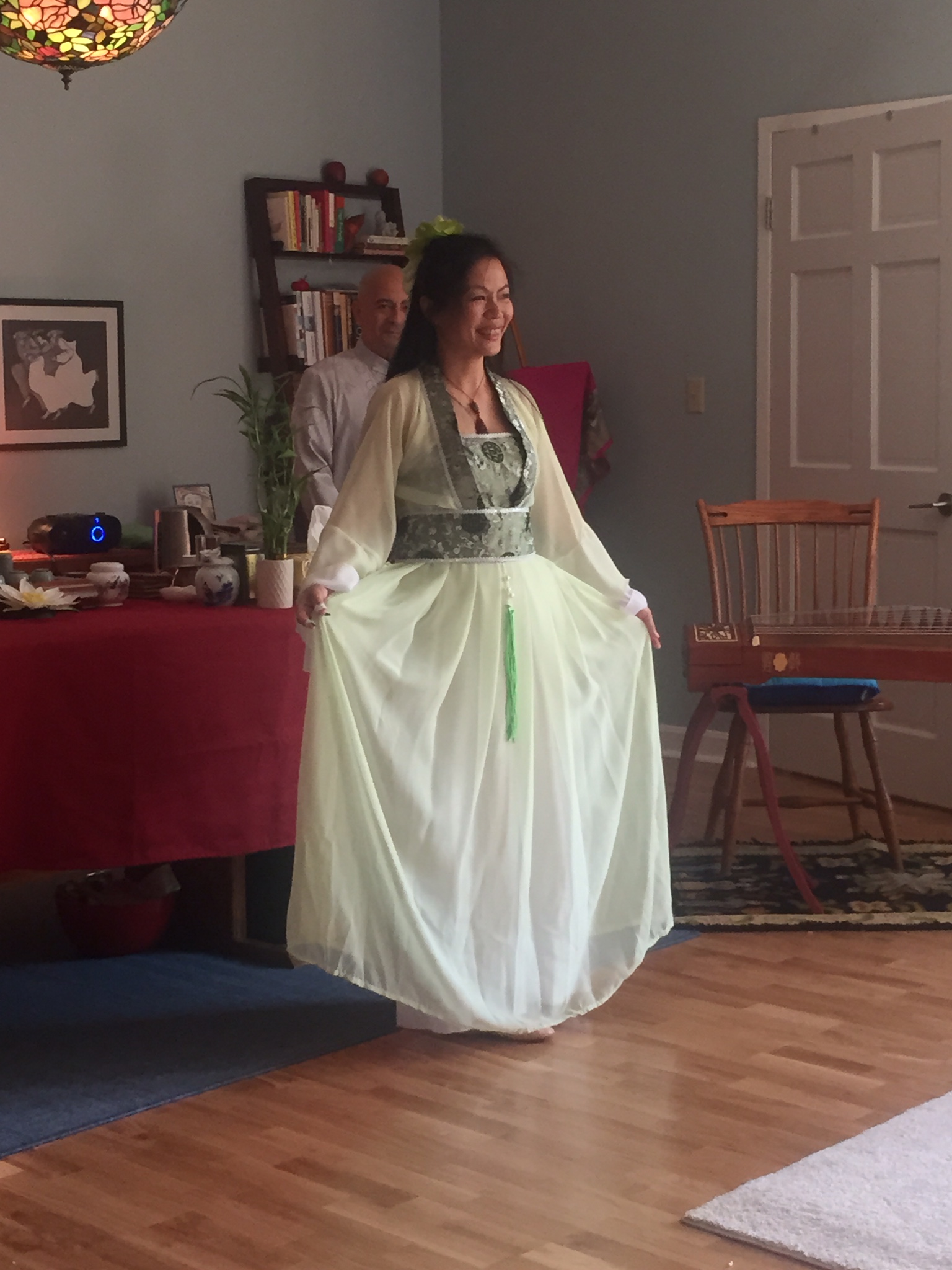

For some it may be hard to recall a time when "9/11" wasn't the shorthand phrase meaning "catastrophe". Before that bright, sunny, September morning fourteen years ago, September 11 was simply a date on the calendar. In the blink of an eye it changed from ordinary to extraordinary, similar to what a previous generation may have experienced in early December 1941 when Pearl Harbor became synonymous with "war". At the time of these events our nation galvanized, we found a sense of collective empathy in our shared experience. In spite of the horror and fear we also found a sense of connection and community.

Through tragedy we found resilience. This is the magic of the human spirit. As we remember the terrible events that unfolded on that September day fourteen years ago, let's also remember the incredible goodness and hope that emerged and transformed us: strangers helping strangers, kindness given without expectation, sharing of resources, a sense of hope and community. How will you honor the date that transformed us -- with horror or hope? There is no denying the horror of 9/11 but can we also honor the hope that unfolded? Will you join me in sharing some hope and goodness on September 11?
Here are 5 simple ways to share hope on September 11:
1. Feed someone's parking meter
2. Buy coffee for the person behind you in line
3. Hold the door for someone
4. Text a <3 to a friend
5. Smile at a stranger
What will you do to share hope today?
Pam


"
Tell me, what is it you plan to do with your one wild and precious life?"
~Mary Oliver
For me, September signals new notebooks, sharpened pencils and anticipation of a new adventure. It doesn't matter how many decades removed we are from our back-to-school days somehow the idea of new beginnings continues to resonate. It is a season of reflection and introspection, as is the custom during the Jewish holidays of Rosh Hashanah and Yom Kippur,
but also one of unlimited possibilities and opportunities Mindfulness can help us to pause, notice and choose opportunities that were previously hidden. Perhaps by making a few tentative marks in that new, clean notebook we will forge a new direction or circle back to a passion that we have consistently ignored due to the busyness of our everyday.
This is a month of new beginnings; metaphorically a month of clean notebooks and sharpened pencils. I invite you to pause and consider, in the words of the poet, Mary Oliver, "Tell me, what is it you plan to do with your one wild and precious life?"
Wishing you a month of new notebooks and many sharpened pencils,
Pam
 "It’s shaped like an
extra large egg – perhaps the size of an ostrich egg, and cuts easily in half
with a knife. It’s very much like a kiwi in terms of texture and
taste. Like the kiwi it shares the black crunchy bits inside and tastes
better cold (in my opinion), although not quite as flavorful. The skin is
tougher than the kiwi and once cut into slices you can easily peel it
back and eat like an orange. Overall, very enjoyable and refreshing." ~ N.B.
"It’s shaped like an
extra large egg – perhaps the size of an ostrich egg, and cuts easily in half
with a knife. It’s very much like a kiwi in terms of texture and
taste. Like the kiwi it shares the black crunchy bits inside and tastes
better cold (in my opinion), although not quite as flavorful. The skin is
tougher than the kiwi and once cut into slices you can easily peel it
back and eat like an orange. Overall, very enjoyable and refreshing." ~ N.B. Jodi (@jsperber) pondered in her initial #MedX panel post, What's Your Relationship with Privacy...Um it's Complicated, that when we use the term privacy in this context, are really responding to a lack of control of the dissemination of the information we are sharing? Perhaps this is rooted in the difference between privacy and confidentiality. Confidentiality refers to the ethical grounding of the patient-provider relationship. Information shared is not divulged without the express understanding of both parties. Are we uncomfortable with the perceived violation of this ethical concept when we openly share health experiences in the public forum of social media? Do the benefits of connection outweigh the risks of information sharing? Is our digital footprint truly controllable?
Jodi (@jsperber) pondered in her initial #MedX panel post, What's Your Relationship with Privacy...Um it's Complicated, that when we use the term privacy in this context, are really responding to a lack of control of the dissemination of the information we are sharing? Perhaps this is rooted in the difference between privacy and confidentiality. Confidentiality refers to the ethical grounding of the patient-provider relationship. Information shared is not divulged without the express understanding of both parties. Are we uncomfortable with the perceived violation of this ethical concept when we openly share health experiences in the public forum of social media? Do the benefits of connection outweigh the risks of information sharing? Is our digital footprint truly controllable?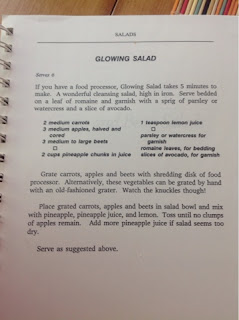 If you want to increase your mindfulness, join a CSA. A highlight of my summer is the weekly mystery bounty from our farm share or CSA (community supported agriculture).
If you want to increase your mindfulness, join a CSA. A highlight of my summer is the weekly mystery bounty from our farm share or CSA (community supported agriculture). OK, I'll admit it I was a Mad Men groupie, tuning in each Sunday night to have a glimpse into the dysfunctional fictional lives of the gang at Sterling Cooper advertising agency. I think the show exposed the underbelly of the not so nice features of being human, and along the way also shed light on the innate qualities of resilience. A sense of resilience wasn't predicated on noble qualities of compassion or empathy, but on self-preservation and survival. Whatever you thought of the moral ambiguity the characters exuded and the choices they each made during the seven seasons of Mad Men, in the end the commonality for all was meeting adversity with a sense of resilience, having taken control of their experience but not the outcome of their choices.
OK, I'll admit it I was a Mad Men groupie, tuning in each Sunday night to have a glimpse into the dysfunctional fictional lives of the gang at Sterling Cooper advertising agency. I think the show exposed the underbelly of the not so nice features of being human, and along the way also shed light on the innate qualities of resilience. A sense of resilience wasn't predicated on noble qualities of compassion or empathy, but on self-preservation and survival. Whatever you thought of the moral ambiguity the characters exuded and the choices they each made during the seven seasons of Mad Men, in the end the commonality for all was meeting adversity with a sense of resilience, having taken control of their experience but not the outcome of their choices.  It is commencement season, a time of new beginnings and setting forth on new adventures. This week is also Nurses Week, a week set aside each year to honor nurses. I have been reflecting on my nearly four decades in the nursing profession...what I imagined as a young nurse setting sail into the world of healthcare and where I have found myself so many years later.
It is commencement season, a time of new beginnings and setting forth on new adventures. This week is also Nurses Week, a week set aside each year to honor nurses. I have been reflecting on my nearly four decades in the nursing profession...what I imagined as a young nurse setting sail into the world of healthcare and where I have found myself so many years later.